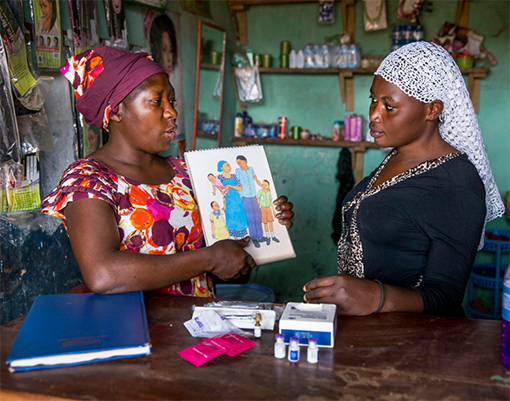
Maternal health, family planning services should be strengthened during lockdown

Faith Kyateka and Pride Ashaba
Lack of access to maternal health services can significantly increase morbidity and mortality during emergencies and pandemics.
Data from Sierra Leone, during the Ebola crisis shows that the lack of access resulted in as many, if not more, deaths from maternal and child health than those caused by Ebola itself.
The study showed that there were an estimated 3,600-4,900 additional maternal, neonatal and stillbirth deaths in the year 2014-15 a similar number to the 4,000 deaths caused by the Ebola virus itself over the entire epidemic.
This evidence shows that in times of crisis, when access to contraception and safe delivery decrease, the subsequent health outcomes are grave.
Due to COVID-19 pandemic, there has been a disruption in provision of reproductive health information and services, with key service providers having to scale down operations thus affecting availability of these services.
Marie Stopes for example has had to suspend community-based outreaches offering reproductive health services however, it should be noted that women don’t stop requiring services when there is a crisis.
Therefore, despite the competing priorities posed by the current crisis, it is vital to maintain investment and momentum to reduce maternal mortality, particularly in the most vulnerable rural communities, both to save lives and because these interventions are crucial to developing strong and resilient health systems.
As women have gained access to family planning and skilled birth attendance, the global maternal mortality ratio has fallen, halving in some countries.
Not classifying contraception and delivery as essential services during this crisis risks reversing this progress.
With the unfolding pandemic and additional strain on public health systems, it is vital that Marie Stopes and other partners continue to support women and health systems by delivering access to essential sexual and reproductive healthcare.
Ensuring availability of family planning /SRH services during this crisis is critical to preventing the long-term vulnerability of unplanned pregnancy, unsafe abortion, and other reproductive health challenges including gender-based violence which has increased with the current lock down.
“We know that during this time of redundancy and confinement at home, women are under a heightened risk of domestic violence and unplanned pregnancy. They need us more today than ever before.” Says Dr. Carole Sekimpi-Country director Marie Stopes UG.
In this time of crisis, we need innovative ways to safeguard access, leaving no one behind – and fast, we therefore recommend the following;
• The use of telehealth and telemedicine services can ease the challenges being faced during this pandemic and support behavioral change if supported and expanded.
Toll free helplines are very convenient for clients to access information and referrals whenever needed and allow real time communication between patients and the clinicians/social workers. Additionally, they reduce unnecessary medical visits and the need for face to face interactions since basic care can be provided remotely and this is very essential in these times to observe social distancing.
• Expansion of community-based delivery of maternal health services. This will enable continuous access of the services to underserved communities. Village health teams and community-based mobilisers should be empowered and equipped to safely deliver basic SRH services and behavior change communication, including self-care information to their communities. Marie Stopes operates a MS lady programme where Midwives are trained and equipped to deliver maternal health services to women at their doorstep.
• Accelerate community sensitization / awareness through mass media campaigns on radio’s, TV’s social media and community megaphones. The use of Mass media campaigns plays a significant role towards improving maternal health outcomes, therefore it’s imperative to carry on creating awareness and providing referral information even during this crisis; to enable women achieve the autonomy to make appropriate reproductive health choices.
The authors work with Marie Stopes Uganda
The post Maternal health, family planning services should be strengthened during lockdown appeared first on Nile Post.
0 Response to "Maternal health, family planning services should be strengthened during lockdown"
Post a Comment